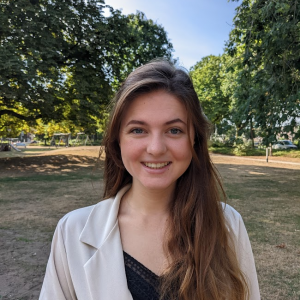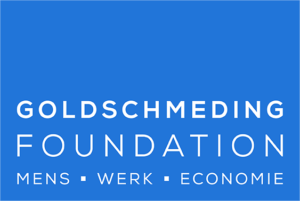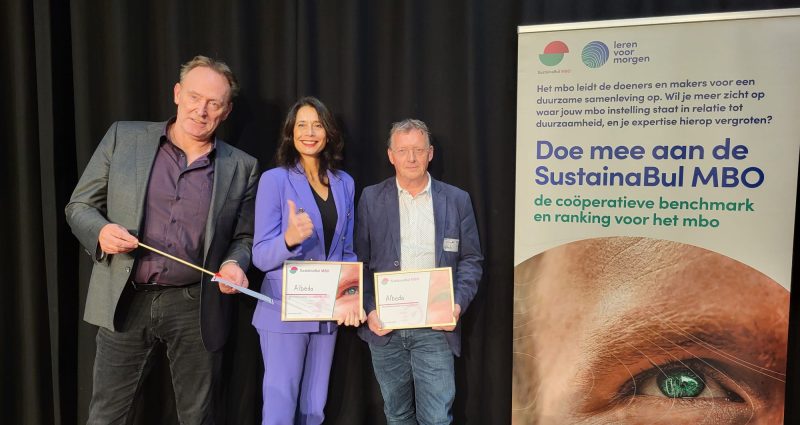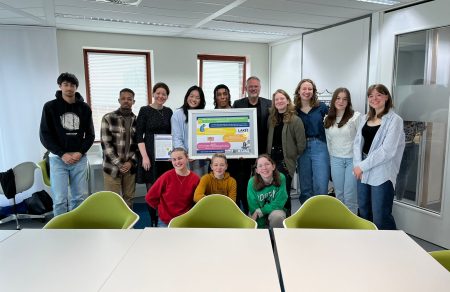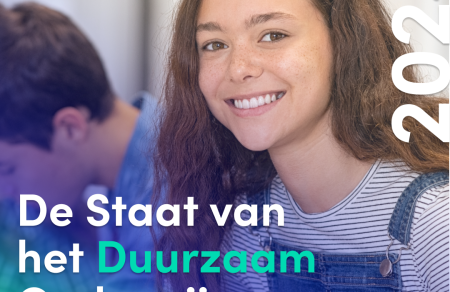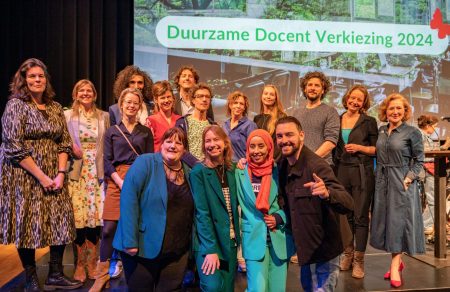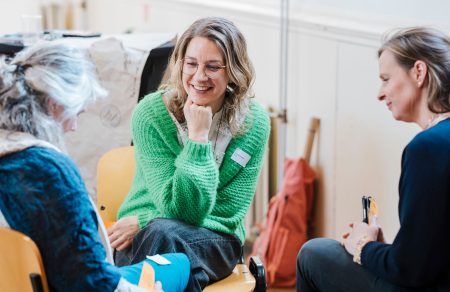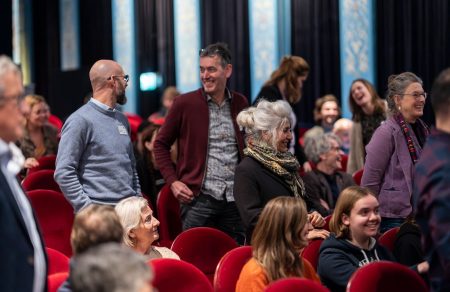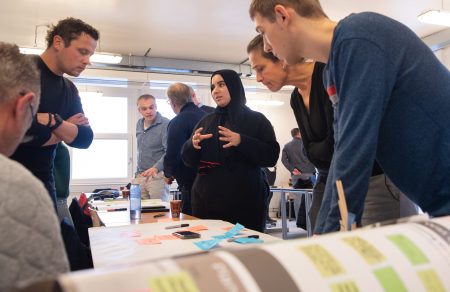Attention to the small scale
"I used to talk to students regularly about the importance of sustainability. In doing so, I always told them about Earth Overshoot Day and that we are now 2.5e planet need to live the way we do now," Rob Ketelaar begins his presentation. He is sustainability program leader at Albeda and together with his colleague Rien van Sprundel, facilities and housing policy advisor, part of the SustainaBul MBO network. "By now I notice that it is better to look at sustainability on a smaller scale and with smaller words pay attention to what lies within the sphere of influence of our students and colleagues" he says.
Getting started with sustainability
Last year Albeda won the SustainaBul MBO, a benchmark for sustainability in mbo. And that was a big celebration! In 2020 they participated for the first time and finished on the 9e place; in 2021, they became 7e; in 2022 they achieved a podium spot with the 2e place; and in 2023 they were allowed to call themselves the most sustainable mbo institution in the Netherlands. "I noticed that everyone became proud and that in turn has been a huge accelerator internally. That is why it is so nice that there are now 3 categories at the SustainaBul MBO, also highlighting the kickstarters and accelerators" said Rob. But how do you ensure that so many sustainable steps are taken? And how do you get from vision to implementation in practice? At Albeda, they recognized 8 things that accelerated this process:
- The Sustainable Development Goals
Explain how the institution is working on all SDGs and collect examples on the website and/or intranet. Describe the SDGs in the context of your institution. Here it is important that, also in the strategy, you do not always choose a few SDGs to work on, this can actually slow down tremendously because of choices you will then make first. What can help is clustering the SDGs into People, Planet and Prosperity. By using the SDGs, we create a world vocabulary on sustainability, allowing us to share knowledge and inspiration. You can also link the SDGs to the questions in the SustainaBul MBO. - A team of 5 people
You need 5 people who are engaged in sustainability, from education and operations, and who you can always depend on. It does not have to be 5 FTEs, as long as this team is intrinsically motivated. There is a risk in making the core team too large, for example by seeking representation from all education teams. It is then difficult to coordinate consultations and build commitment. With the core team of 5 people, we focus on creating a positive flow, by seeking and encouraging all people who want to go in the same direction and not get caught up in discussions. - Sustainability is included in the strategy
Of course it accelerates enormously if sustainability is included in the strategy. With this you establish together that you are going to work on it. Albeda had both hard controls (SMART objectives and KPIs) and soft controls (all colleges raise the SDG flag). The points on which Albeda has focused are mainly the inclusion of sustainability in all courses; sustainability reporting; purchasing, consumption and waste; and CO2 reduction. - Attention to pedagogy
Albeda instructors are instructed to always ask three questions that encourage attention to sustainable development: 1) Is what I am pursuing good for me? 2) Is what I am pursuing good for my profession? And 3) Is what I am pursuing good for the planet? A good example: a huge amount of materials are consumed and waste is produced in healthcare, including the CO2 effects. This has a negative impact on people's health, while the sector wants to make people better. Care training pays attention to this paradox. - Attention to didactics
Attention can also be paid to didactics in education to accelerate sustainable steps. At Albeda, for example, the hackathon is regularly used as a form of work. For example, students from Albeda and the Wood and Furnishings College teamed up with sustainable companies, working interdisciplinary with advanced tools, such as the ability to print ideas and concepts in 3d. - Practice what you preach in business management
As an educational institution, you can also set a good example yourself by making sustainable choices in business operations. Some examples of this at Albeda are: the communication departments have a 'refuse gadgets' attitude. Charging points and bio gardens have been realized. Sustainable energy is also generated and waste is separated. - The sustainable abc's
Sometimes then sustainable issues or concepts are very big or abstract. With a sustainable abc you try to make these issues small and manageable. An example would be (a) energy transition. This can be contributed to by (b) more circular business operations. To realize that business operation, use can be made of (c) the R-ladder as a tool. The R-ladder consists of 10 strategies to make business operations more circular. - Environmental, Social, Governance reporting as standard
There will also be reporting requirements for organizations funded with public money, including OCW, where you have to pay attention to Environment, Social and Governance (ESG). This may involve looking at dual materiality, where there is an effect on both finance and society. Among other things, Albeda uses the SustainaBul MBO questionnaire in its reports and further supplements this data. The reporting requirements can be enormously accelerating for sustainability coordinators, after all, then there is solid pressure behind them.
Curious about Rob Ketelaar's slides? You can download these here download.
Want to know more about sustainability in the MBO and the SustainaBul? Take a look at the website Or join the MBO network To stay updated on knowledge, events and inspiration.
